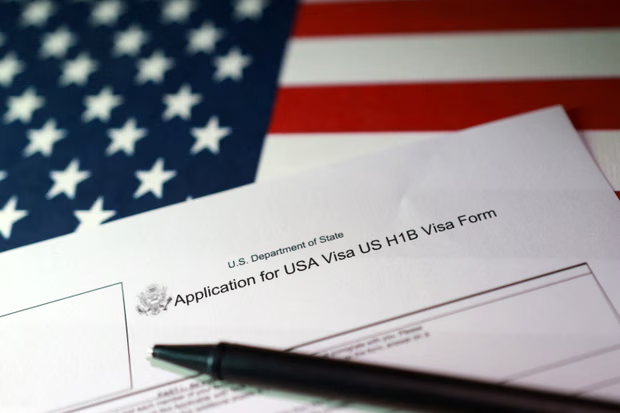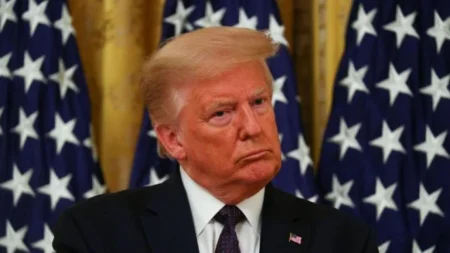The Trump administration has introduced a $100,000 annual fee for H-1B visa applications, a program allowing U.S. companies to hire foreign professionals in fields such as IT, healthcare, and engineering. The new fee, effective Sunday, has sparked strong reactions from workers, businesses, and international partners.
H-1B visas, created in 1990 under President George H.W. Bush, permit employers to bring highly educated foreign workers into “specialty occupations” requiring at least a bachelor’s degree. Typically issued for three years and renewable to a maximum of six, the program currently supports approximately 730,000 visa holders and an additional 550,000 dependents, according to a 2025 report from immigration advocacy group FWD.us.
Previously, the cost for H-1B applications ranged from $1,700 to $4,500, depending on processing speed and legal fees. Congress caps the program at 85,000 visas per year, awarded via lottery, with an initial $215 registration fee. The new $100,000 fee is designed to be paid by sponsoring companies, not applicants.
Commerce Secretary Howard Lutnick defended the fee at a Friday briefing, saying it encourages employers to hire American workers while ensuring foreign hires are highly valuable. “Either the person is very valuable to the company and America, or they are going to depart, and the company is going to hire an American,” he said.
Trump’s stance on H-1B visas has shifted over time. Last year, he expressed support for the program, calling himself a “believer” and noting his personal use of H-1B workers. The latest fee, however, is framed as a measure to protect American jobs and generate revenue for tax reductions and debt reduction, according to Trump.
The fee has alarmed the tech industry, which relies heavily on H-1B workers. Roughly two-thirds of visas are used for computer-related roles. Major companies, including Amazon, Google, Meta, Microsoft, and Apple, employ significant numbers of H-1B holders, some of whom were previously visa holders themselves, such as Elon Musk and Sundar Pichai. Many STEM fields, including education and healthcare, also depend on the program.
Economists warn that the fee may discourage skilled foreign workers from coming to the U.S., potentially slowing economic growth and causing a “brain drain.” India, the largest beneficiary of H-1B visas, expressed concern over potential disruptions for families and urged U.S. authorities to mitigate the impact.
Some business leaders, however, support the policy. Netflix co-founder Reed Hastings praised the fee on X, saying it prioritizes high-value jobs and reduces uncertainty associated with the lottery system.
The fee applies only to new visa applicants, not renewals or current H-1B holders, clarified White House Press Secretary Karoline Leavitt. Workers already in the U.S. or abroad under existing visas will not be charged the new amount to re-enter the country.
Political debate over H-1B visas continues. Critics, including Senator Bernie Sanders, argue that the program undercuts American workers by allowing companies to hire cheaper foreign labor. Supporters contend it brings essential talent to sectors struggling with labor shortages.
The new $100,000 fee marks a significant change in U.S. immigration policy for skilled workers, with the potential to reshape hiring practices in major industries and affect thousands of families who depend on the program.







